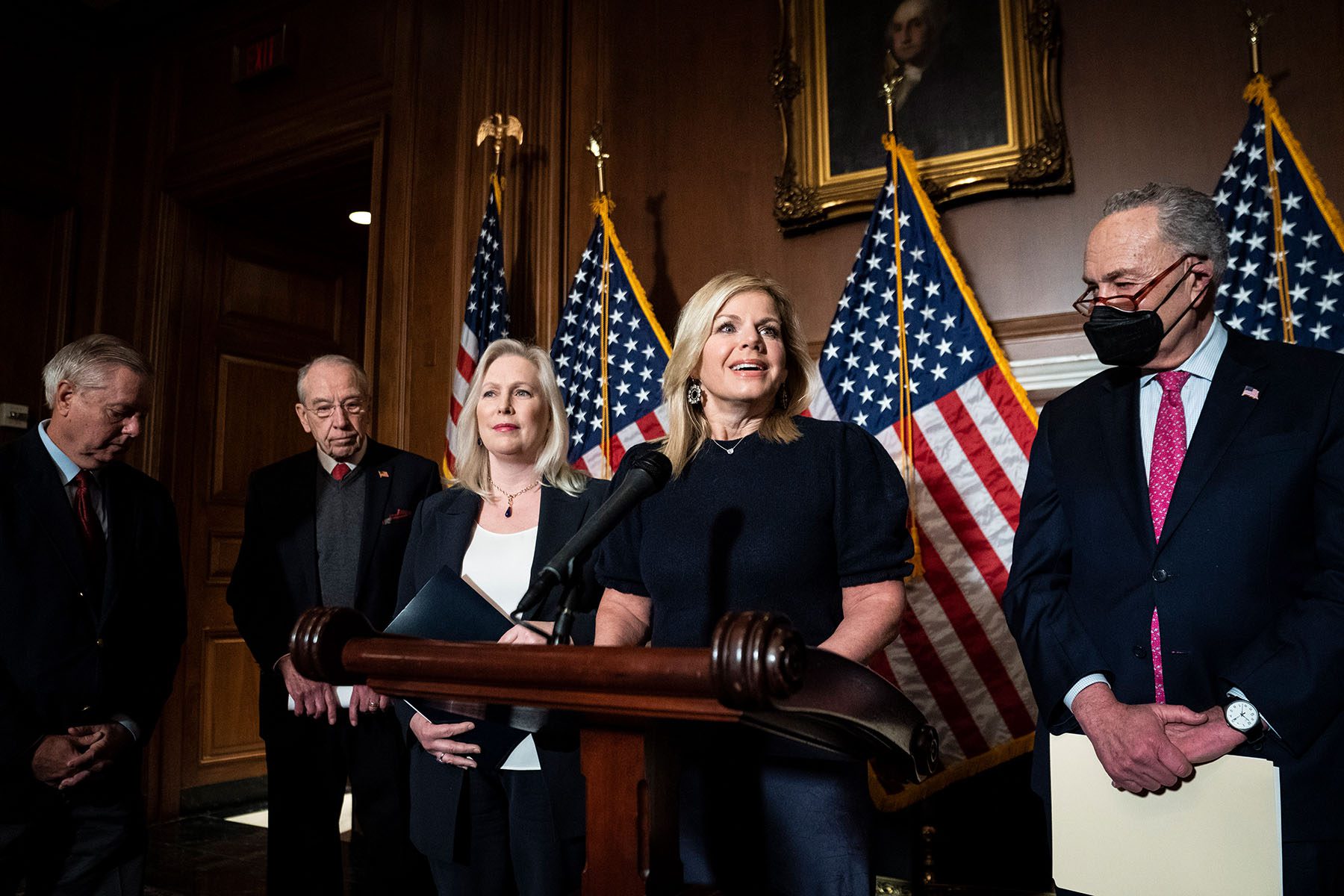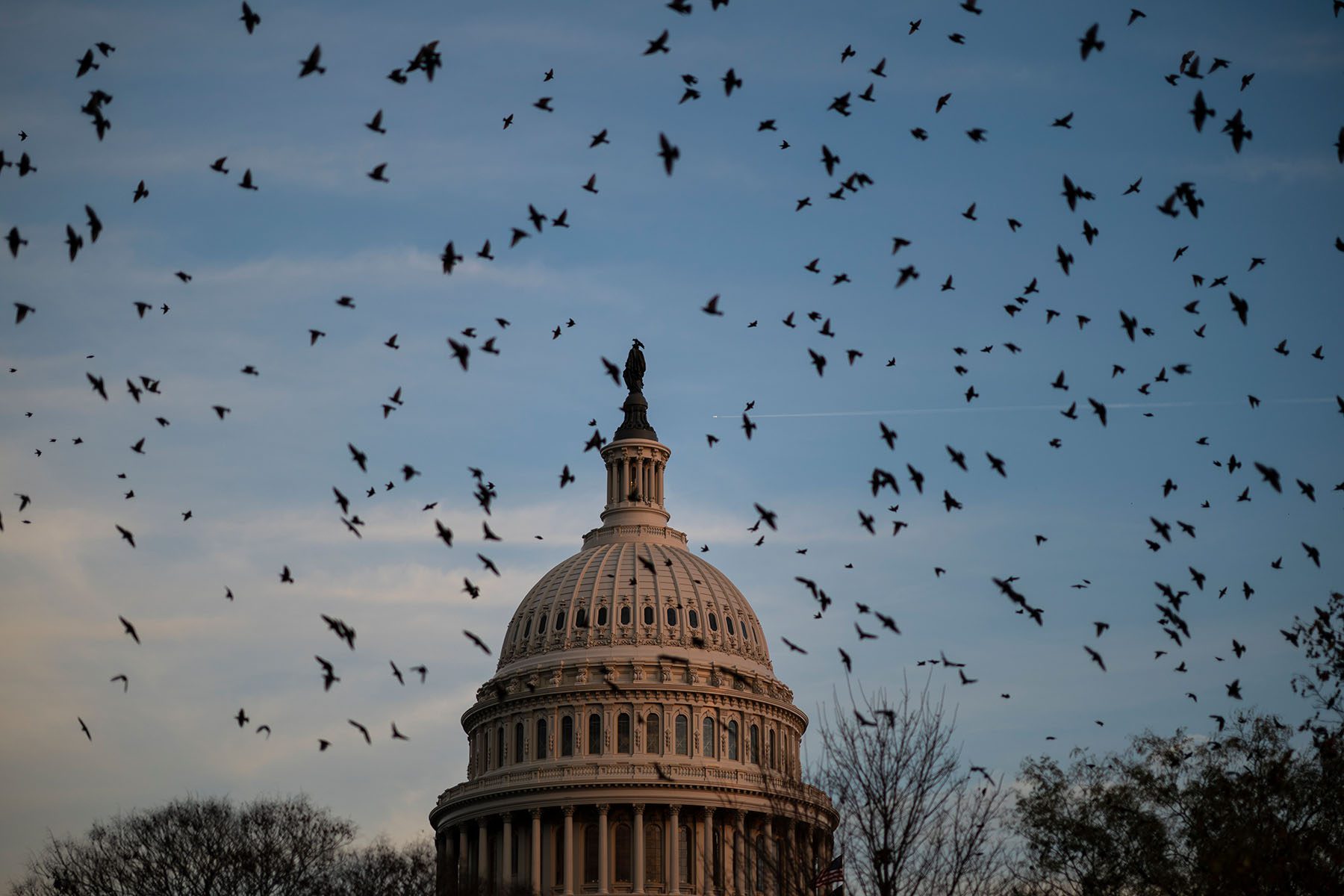One in three women report having faced sexual harassment in the workplace, and often they can’t talk about it: More than one-third of the U.S. workforce is bound by nondisclosure agreements (NDAs) that can silence victims of abuse and shield employers from accountability. But now, five years after the #MeToo movement took off, Congress is limiting an employer’s ability to keep its employees quiet.
On Wednesday, Congress passed bipartisan legislation, the Speak Out Act, which bans the use of nondisclosure agreements in cases of workplace sexual assault and harassment, by a vote of 315 to 109. The bill passed in the Senate in September and is now headed to the Oval Office to be signed into law.
“This is a great step forward, especially for women in this country,” said Democratic Rep. Lois Frankel of Florida, who introduced the bill in June alongside Rep. Ken Buck, a Colorado Republican. “The goal of this legislation is really to change the culture in the workplace right now.”
The Speak Out Act prohibits the use of NDAs between employers and current, former and prospective employees in cases of sexual assault and harassment. It also invalidates existing NDAs in cases that have not yet been filed. The legislation comes on the heels of the passage of a bill that banned mandatory arbitration in sexual harassment and assault cases.
“This is a one-two punch,” Frankel said. “When you think about how many people are subjected to these agreements and how rampant sexual assault and abuse is in this country, these are two incredibly significant new laws that are going to change the culture and force corporations to protect their workers instead of trying to hide the dirty little secrets.”
Ahead of the House vote on Tuesday, the White House applauded the new legislation.
“Workers should not be silenced in the face of workplace sexual harassment and assault, or face retaliation for coming forward to report such abuse,” the administration said in a statement. “Transparency is the best way to hold employers and perpetrators accountable.”
Imre Szalai, a social justice professor at Loyola University New Orleans, told The 19th this summer when the bill was introduced that arbitration agreements and NDAs were developed in the United States for commercial purposes to handle business-to-business disputes in a more speedy and cost-effective manner. The federal arbitration law was first enacted in 1925, but sometime between the 1970s and 1990s, Szalai said there was a “snowball effect” and these agreements began appearing more broadly in consumer and employment relationships. And now, the U.S. relies on its corporate sector to resolve internal disputes more than any other country in the world.
Frankel said she’s been working on this issue for years, driven largely by the #MeToo movement that arose after accounts of film producer Harvey Weinstein’s perpetuated sexual abuse came to light and made headlines five years ago. Frankel said there was a lot of publicity highlighting the stories of movie stars and television personalities who were being assaulted and harassed, but not as much attention was brought to the women who came forward in other industries.
“We started having hearings and inviting women from just about every profession you can think of,” Frankel said. “We were dumbfounded. It was unbelievable and shocking what we were hearing. You name any profession, and we heard the stories. From the hotel maids, the farm workers, the tech professionals, the welders — we heard story after story of sexual harassment or sexual abuse.”
Gretchen Carlson and Julie Roginsky, former Fox News employees and cofounders of Lift Our Voices, an advocacy group working to end forced arbitration and NDAs, have also been working for years with members of Congress to help survivors of workplace harassment. Both Carlson and Roginsky filed lawsuits against Roger Ailes, the late television executive and media mogul, in 2016 and 2017, respectively, alleging sexual harassment.

“The goal of the silencing mechanisms is to isolate you, to make you feel like you’re the only one that this is happening to, to protect predators by ensuring that nobody will know,” Roginsky said. “What survivors go through is something that has driven countless women out of the workforce because they have to choose between staying in an untenable situation silently or leaving their chosen careers.”
Carlson, an instrumental voice in the #MeToo movement, said that she was thrilled by the passage of the Speak Out Act as it will allow survivors to speak out and allies to step in and keep perpetrators accountable.
“We believe that our laws have dual effects,” Carlson said. “They work to stop the vicious cycle of silence, but they also work to stop people from doing this behavior.”
Roginsky agreed that this move to ban NDAs in cases of sexual assault is a “huge, huge step” for the #MeToo movement, while acknowledging that there is still more work to be done.
“Both Gretchen and I have been around long enough to know that change is often incremental,” Roginsky said. “And you have to negotiate what you can to advance the ball down the field. We are pleased with what we got, and we fully intend to come back for more.”
In addition to advocating for legislation on Capitol Hill, Lift Our Voices is working at the state level to pass more expansive bans on corporate use of NDAs and forced arbitration clauses. Roginsky said their goal is to ban the use of these mechanisms, not just in cases of sexual assault and harassment, but in “all toxic workplace issues,” including in cases of racial, gender, age or disability discrimination.
In 2019, New Jersey became the first state to ban the use of NDAs for all toxic workplace issues. California and Washington state followed suit, and similar legislation was introduced in New York state a few months ago, Roginsky said.
It took years of work and countless negotiations and compromises, but Carlson said she is buoyed to see the end to forced arbitration clauses and NDAs related to sexual assault and harassment in the workplace, on a federal level.
“We believe that eradicating these two silencing mechanisms is the silver bullet to equity for people finally in the workplace,” Carlson said. “And we also believe that it’s a reckoning for companies to start paying attention to the fact that people are becoming educated about these issues. … I think it’s an interesting time if we want our movement to continue here where we are having success legislatively but also need to change the hearts and minds of people. We’re not just going away. This isn’t a passing fad.”







